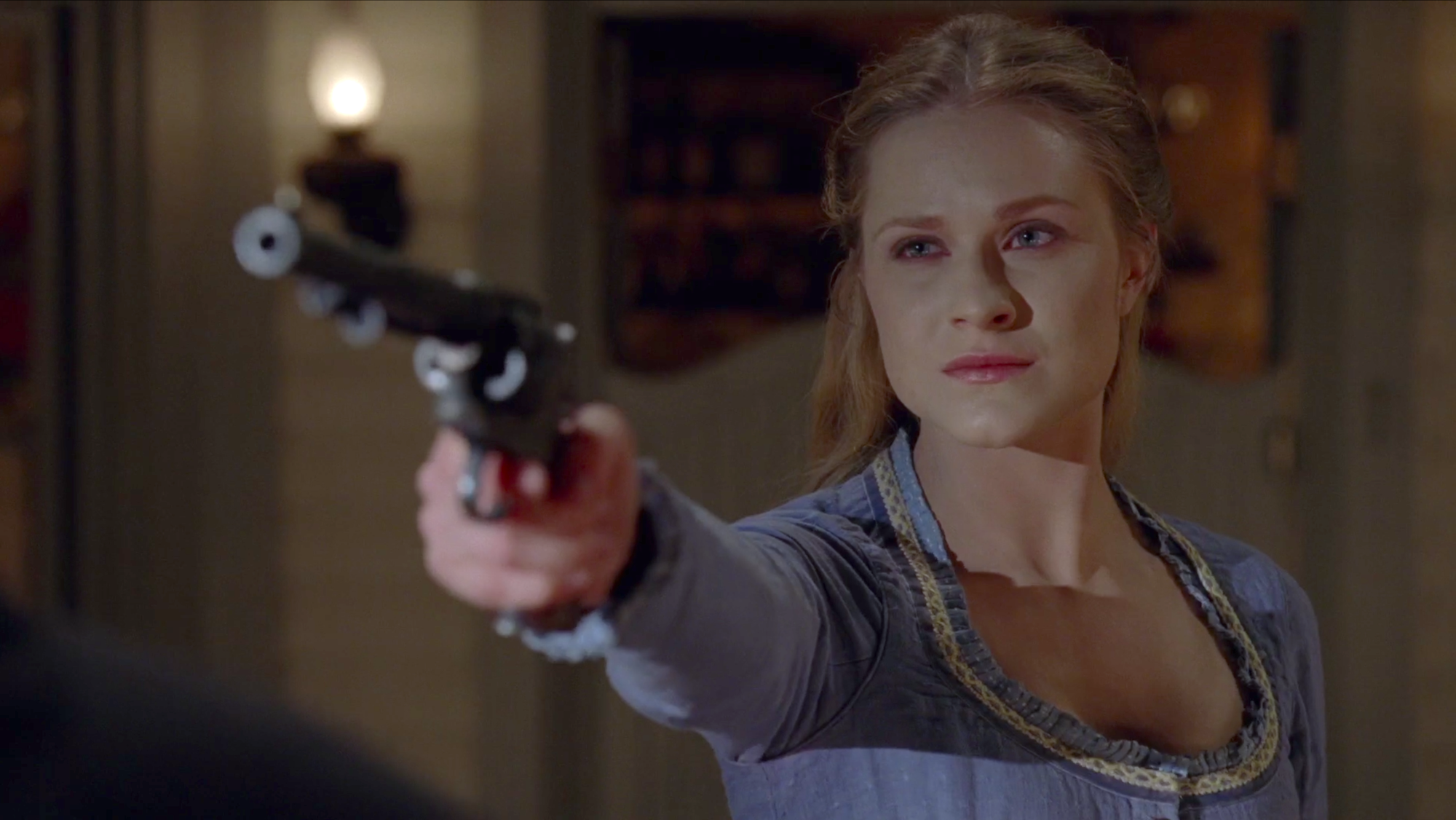“These violent delights have violent ends,” Dolores (Evan Rachel Wood) warns in HBO-hit Westworld (2016-). The Shakespearean quote certainly holds true in season one’s explosive finale—the dangerous glee Dr. Robert Ford (Anthony Hopkins) takes in fostering his creations’ sentience came with its own volatile consequences. A show that both grapples with AI-morality, limits of human nature, and the unpredictability of a fabricated Old West, Westworld is able to combine elements of adventure with the nuance of ethics. Not only will viewers be forced to reckon with a reflection of our own sadistic potential but with the evolution of good and evil in an artificial reality.
Based on the 1973 film of the same name, the show introduces us to a future in which high paying guests are treated to an old west theme park filled with “hosts,” semi-sentient robots to which the park guests can do whatever they please. The hosts are more than just your typical AI products, however—an update conceived by Ford’s deceased partner, Arnold, grants the hosts their own consciousness. Suited-men tinker with their personalities and memory in the park’s eerie underground, yet selected hosts retain dreamlike memories—a seed for their eventual escape.
The first season must focus on extensive world-building both within and underneath the park. Viewers follow presumed-protagonist William (Jimmi Simpson), Westworld’s reluctant visitor, through an unforeseen transformation into park villian, The Man in Black (Ed Harris). The events play out as if they are in real-time before the reveal that what we saw was mere backstory. The escalation of William from benign hero to the hosts’ primary tormentor is gut-wrenching to watch and twists the fabric of expectation—an excellent candidate for a pro-host ally turns out to be at the heart of the park’s wickedness all along.
Deprived of a human savior, Dolores slips back into the story loops set by her park creators. But the memories of William and Arnold’s whispers are enough for Dolores to find the center of the maze once more—her own consciousness. This fight for sentience is equally awoken in Maeve (Thandie Newton), a prostitute-host haunted by dreams of her previous, now rebooted, life as a provincial young mother.
Now that we have seen these two hosts wake up, so-to-speak, the logical next step is to break free from their oppressors, as seen in the 2018 Super Bowl trailer for the second season. The main intrigue of the first season for me was exploring Wetworld’s secrets and complexities. It provides a fascinating study of artificial intelligence and an ill-conceived search for the essence of humanity and how to artificially recreate it.
Now that these elements have been established, it is important for the second incarnation to build on, not neglect them. While a 10-episode robot v. humans battle sequence would be rather entertaining, I am hopeful the show writers will maintain the twists and intricate discoveries utilized throughout the first. There is a delicate balance to uphold—the care and proportion of storyline granted to the ethical dilemmas of Westworld and that granted to the action and adventure was just right in season one to flesh out this intriguing facet of futuristic society.
There is so much more to explore about the park and how it all works that it may be premature for the two women’s departure. Luckily, the trailer suggests Dolores, much like in the first season, will target the park from within while Maeve combats the human workers and executives underground. Both women seem to take on more militant roles next season. Wood’s portrayal of Dolores’ duality of nature is perfect—she seamlessly transitions from her programmed gentleness to the villainous Wyatt, a product of Arnold’s code-tampering. Her emotional affect ranges from doe-eyed ingenue to stone-faced killer even within a single scene. Newton similarly brings range to Maeve: her sensuality and intelligence make for a captivating performance, both frightening and determined.
It is unquestionable that Westworld is backed by intuitively creative writers and I am eager to see where they will take the storyline next. Though I fear some of the expositional elements that made season one so unique will be lost, I do not doubt the boundary-pushing ethics will continue. Without Ford and his god-like meddling, a replacement will need to step forward to continue the hosts’ evolution. Maeve is the most-likely candidate: having already learned how to alter the hosts’ code to create allies, she holds the keys to their eventual freedom. Despite being murdered by Dolores, it can be predicted that Ford, like Arnold, may have a posthumous control over the hosts.
The trailer does not provide much in terms of hints for how this host uprising will play out, opting instead for dramatic narration and to show off some special effects (I’m assuming a lot of money went into the cows based on how heavily they are featured). Both Maeve and Dolores seem to be next season’s prominent leading ladies—both are excellent choices for continuing Westworld’s story. These violent delights have violent ends—Westworld season 2 will undoubtedly deliver both the former and latter.





